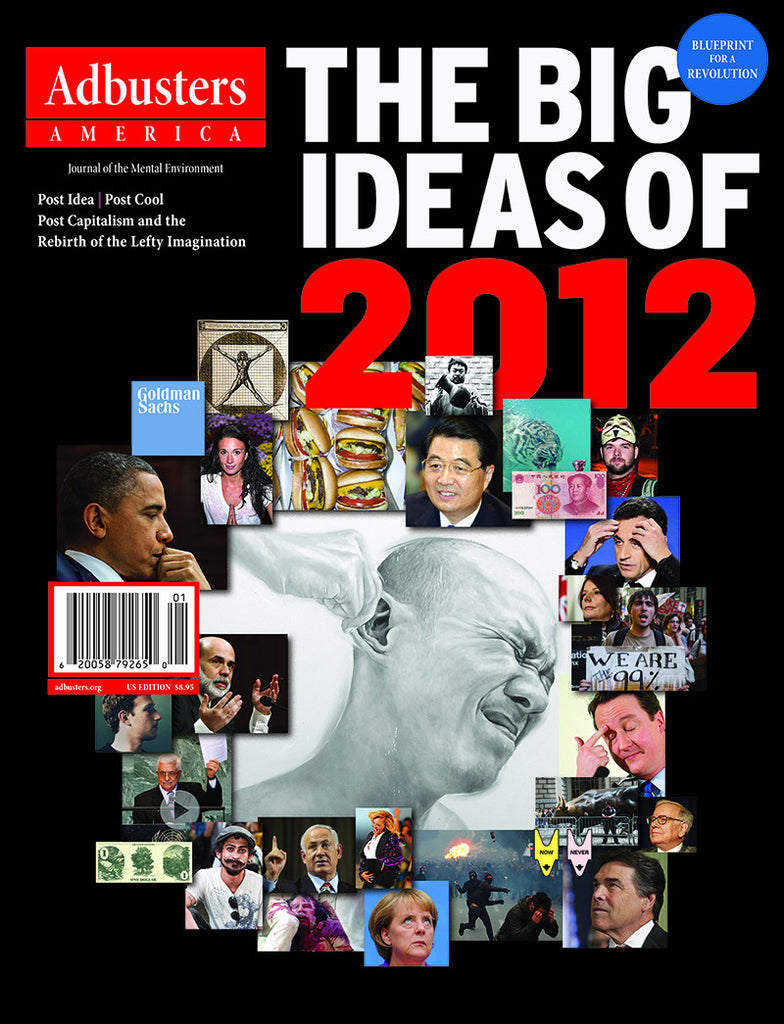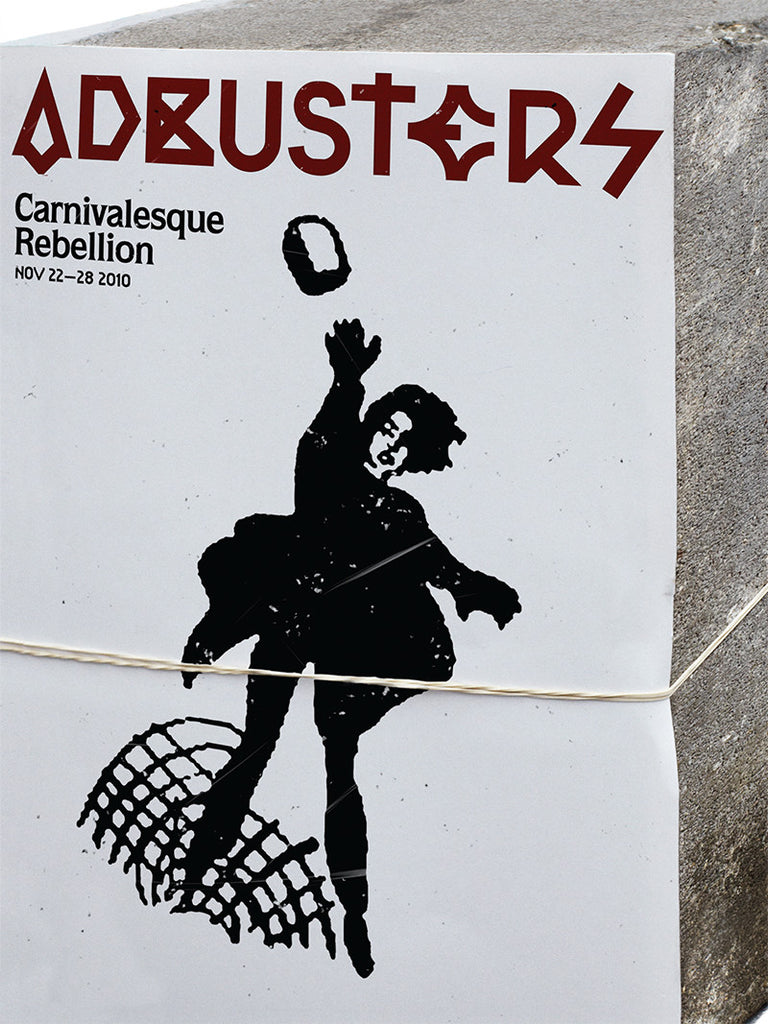Operacija Grad: Priručnik za život u neoliberalnoj stvarnosti (2008) [Croatian]
Filed under book | Tags: · activism, city, neoliberalism, public space

“Fraza “neoliberalna stvarnost” zvuči ponešto visokoparno i rasplinuto, no čim se ta stvarnost konkretnije sagleda pa je opišite kao refeudalizaciju javnih prostora i dobara, pitanja koja nas ovdje zanimaju gube svoju prividnu nedužnost i postaju oruđe u borbama za stvaranje i očuvanje prostora javnog i kolektivnog djelovanja. S onu stranu kulturnih i političkih kruha i igara, nadamo se da će vas ovaj priručnik potaknuti da postavite u pitanje novi društveni konsenzus, koji vam kao jedine dvije opcije ostavlja trijumfalizam i viktimizaciju.” (iz uvoda)
Editors: Leonardo Kovačević, Tomislav Medak, Petar Milat, Marko Sančanin, Tonči Valentić, Vesna Vuković,
lektura: Tonči Valentić
Executive editor: Tomislav Domes
Publisher: Savez za centar za nezavisnu kulturu i mlade, Multimedijalni institut, Platforma 9,81 – Institut za istraživanja u arhitekturi, BLOK – Lokalna baza za osvježavanje kulture, SU Klubtura / Clubture, Zagreb, December 2008
ISBN 978-953-95317-2-8
272 pages
dj readies (Craig J. Saper): Intimate Bureaucracies: A Manifesto (2012)
Filed under book | Tags: · activism, bureaucracy, democracy, networks, occupy movement, politics

Intimate Bureaucracies is a history from the future looking backward at our present moment as a turning point. Our systems of organization and control appear unsustainable and brutal, and we are feeling around in the dark for alternatives. Using experiments in social organization in downtown New York City, and other models of potential alternative social organizations, this manifesto makes a call to action to study and build sociopoetic systems.
One alternative system, the Occupy movement, has demands and goals beyond the specific historical moment and concerns. This short book/manifesto suggests that the organization and communication systems of Occupying encampments represent important necessities, models, goals, and demands, as well as an intimate bureaucracy that is a paradoxical mix of artisanal production, mass-distribution techniques, and a belief in the democratizing potential of social media.
Participatory decentralization, a mantra of political networks, expresses a peculiar intimate bureaucratic form. These forms of organization represent a paradoxical mix of artisanal production, mass-distribution techniques, and a belief in the democratizing potential of social media. Borrowing from mass-culture image banks, these intimate bureaucracies play on forms of publicity common in societies of spectacles and public relations. Intimate bureaucracies monitor the pulse of the society of the spectacle and the corporatized bureaucracies: economics as in Big Business, culture as in Museums and Art Markets, mass media as in Studio Systems and Telecommunication Networks, safety as in Big Brother militarized police forces, and politics as in Big Government. Rather than simply mounting a campaign against big conglomerations of business, government, police, and culture, these intimate bureaucracies and their works use the forms of corporate bureaucracies for intimate ends. Rather than reach the lowest common denominator, they seek to construct what those in the business world would call niche marketing to ultra-specific demographics. Businesses, interested in utilizing the World Wide Web and the Internet, already use these strategies for niche marketing. The historical examples and sketches, explored in this pamphlet, examine how these cultural experiments emulate and resist the systems used in Internet marketing.
The apparent oxymoron, intimate bureaucracies, suggests not only a strategy, but the very basis for the new productive mythology surrounding the electronic World Wide Web.
Intimacy, the close familiarity of friendship or love, by definition depends on a small-scale system of communication. Its warmth, face-to-face contact, and fleeting impact has often made it the subject of art and literature. It usually only appears in administration situations as either an insincere ornamentation of a political campaign (“pressing the flesh” or “kissing babies”), or as inappropriate office behavior (affairs, gossip, child abuse, etc.), but rarely as the center of a political system. The “small is beautiful” movement of the 1960’s and 1970’s did suggest the possibility of an intimacy in politics, but not how to scale the system to the size of a government.
Publisher Punctum Books, Brooklyn, New York; with AK Press Tactical Media, Baltimore / Oakland / Edinburgh; and Minor Compositions, Wivenhoe / Brooklyn / Port Watson, March 2012
ISBN 978-0615612034
Creative Commons Attribution-NonCommerical-NoDerivs 3.0 Unported License
60 pages
Adbusters, 90-99 (2010-2012)
Filed under magazine | Tags: · activism, advertising, culture jamming, ecology, graphic design, mass media, occupy movement, politics, protest, visual culture










“Based in Vancouver, British Columbia, Canada, Adbusters is a not-for-profit, reader-supported, 120,000-circulation magazine concerned about the erosion of physical and cultural environments by commercial forces. Our work has been embraced by organizations like Friends of the Earth and Greenpeace, has been featured in hundreds of alternative and mainstream newspapers, magazines, and television and radio shows around the world.
Adbusters offers incisive philosophical articles as well as activist commentary from around the world addressing issues ranging from genetically modified foods to media concentration. In addition, our annual social marketing campaigns like Buy Nothing Day and Digital Detox Week have made us an important activist networking group.
Ultimately, though, Adbusters is an ecological magazine, dedicated to examining the relationship between human beings and their physical and mental environment. We want a world in which the economy and ecology resonate in balance. We try to coax people from spectator to participant in this quest. We want folks to get mad about corporate disinformation, injustices in the global economy, and any industry that pollutes our physical or mental commons.” (source)
Publisher Adbusters, Vancouver, British Columbia, Canada
ISSN: 0847-9097
PDF No 99: The Big Ideas of 2012
PDF No 98: American Autumn
PDF No 97: Post Anarchism – #OCCUPYWALLSTREET
PDF No 96: Apocalyptic Boredom
PDF No 95: Post West
PDF No 94: Post Normal
PDF No 93: Capitalism’s Terminal Crisis
PDF No 92: The Carnivalesque Rebellion Issue
PDF No 91: I, Revolution
PDF No 90: Whole Brain Catalog

